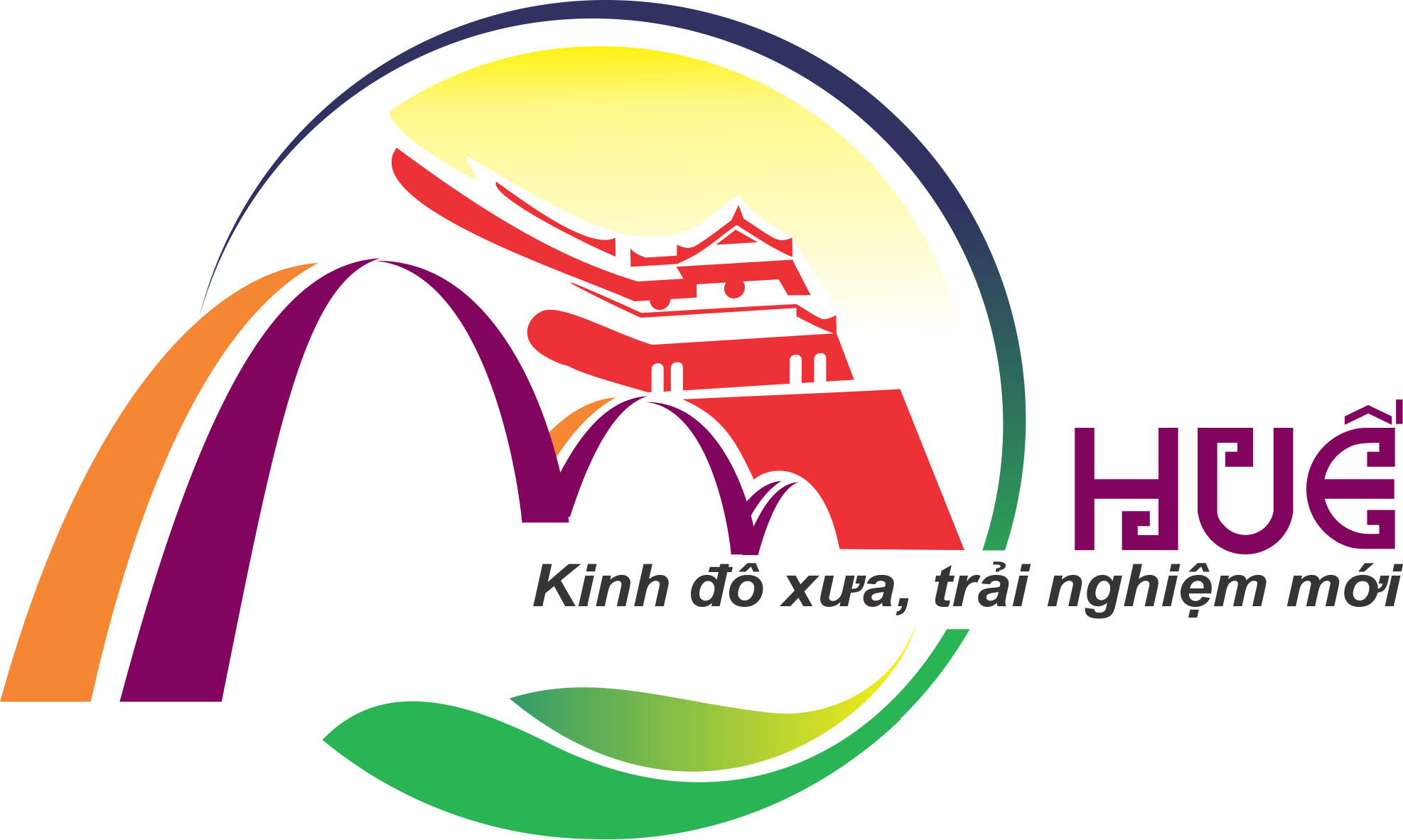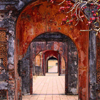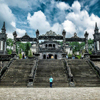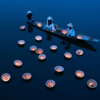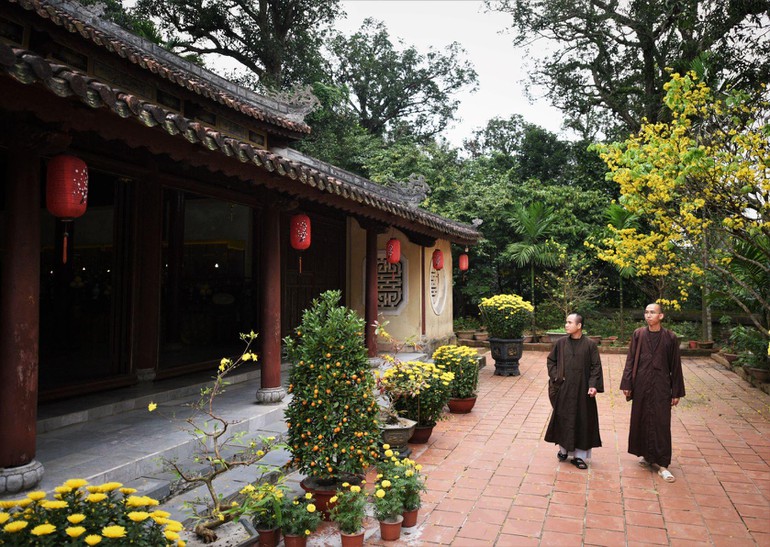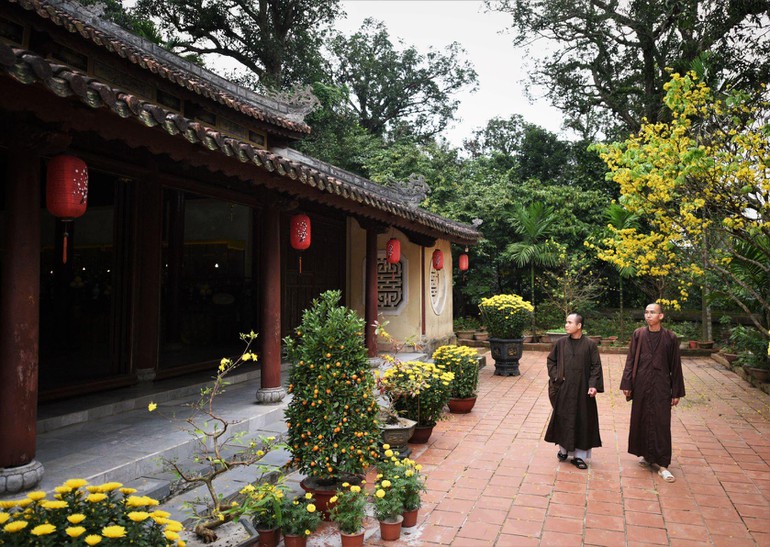
Tet is an occasion to visit brothers
It is the yellow apricot branch at the corner of the pagoda, the bustling atmosphere of wrapping bánh chưng (Vietnamese Square Sticky Rice Cake), watching the pot of cooking bánh tét (Vietnamese Cylindrical Sticky Rice Cake) or the moment of brotherhood, teachers and students gathering around an early cup of tea, sharing the joys and sorrows on their path of Buddhist studies during the last year.
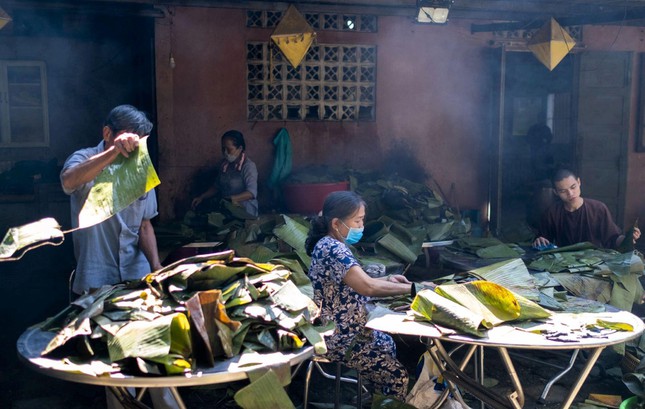
The last days of the year are the time when monks and Buddhists have the opportunity to gather together to wrap bánh chưng and bánh tét to welcome the new year. This is a tradition that Hue people still keep to this day. Photo: Hieu Truong
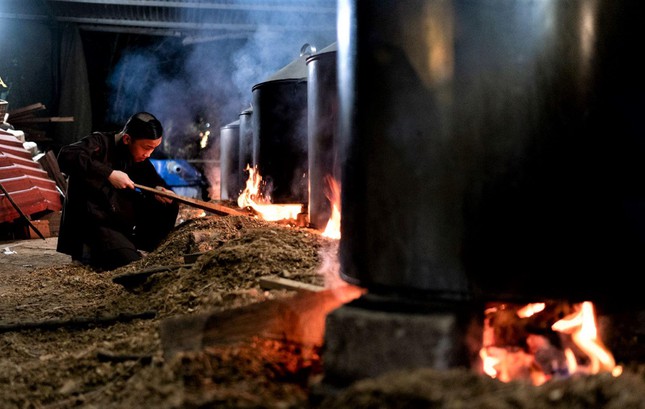
Sitting and watching the pot of cooking bánh tét in the cold weather is always something that many people long for every Tet holiday. This brings back the memory of a traditional Tet from long ago that our ancestors had preserved.
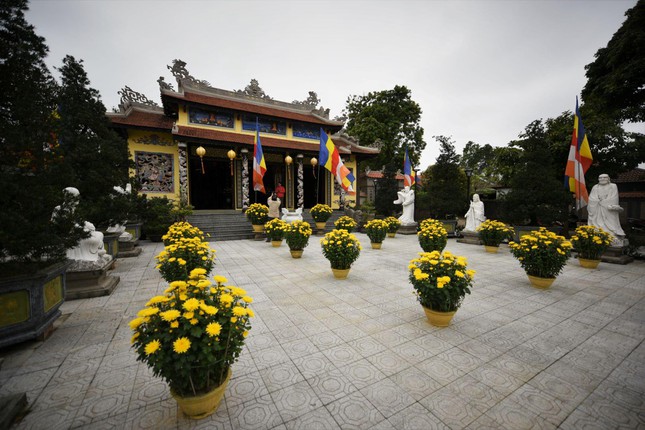
Colors of Hue’s spring in the ancient pagoda of Kim Tien. This is the place that was once chosen to be the residence of Princess Ngoc Han - The Empress of the North Palace (Empress Consort) of Emperor Quang Trung. Through many ups and downs, this pagoda is still preferred by the people of Hue as a place of worship at the beginning of the year.
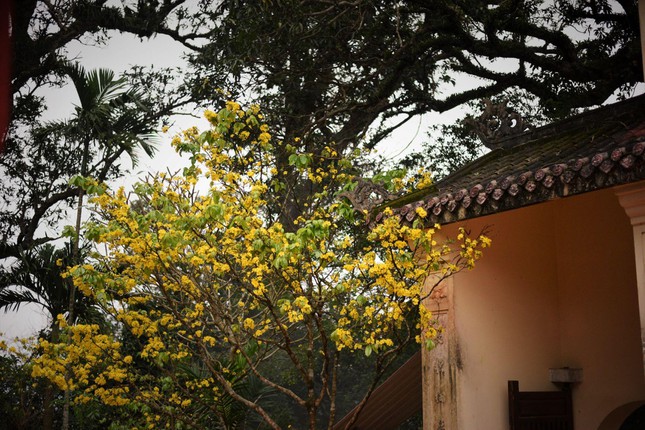
A yellow apricot on the corners of pagodas is a familiar image when visiting pagodas in Hue. To the people of the ancient capital, a pagoda garden without a yellow apricot is no different from a pagoda without Buddha.
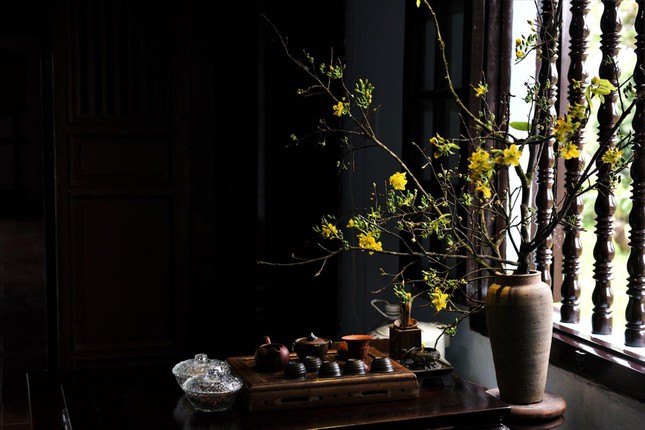
A quiet tea corner is the space that monks often use to welcome visitors.
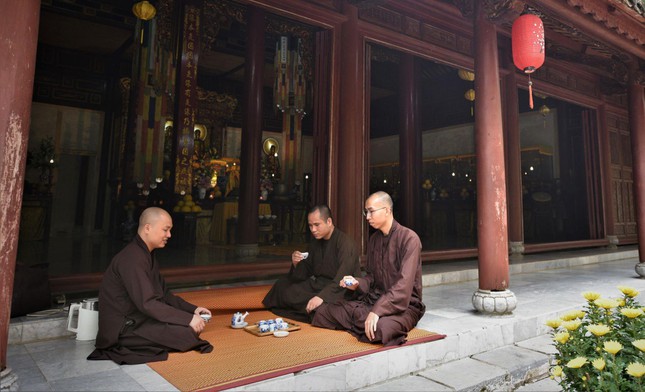
A veranda is also a place where monks often gather together, brothers share their joys and sorrows on their path of Buddhist studies during the last year.
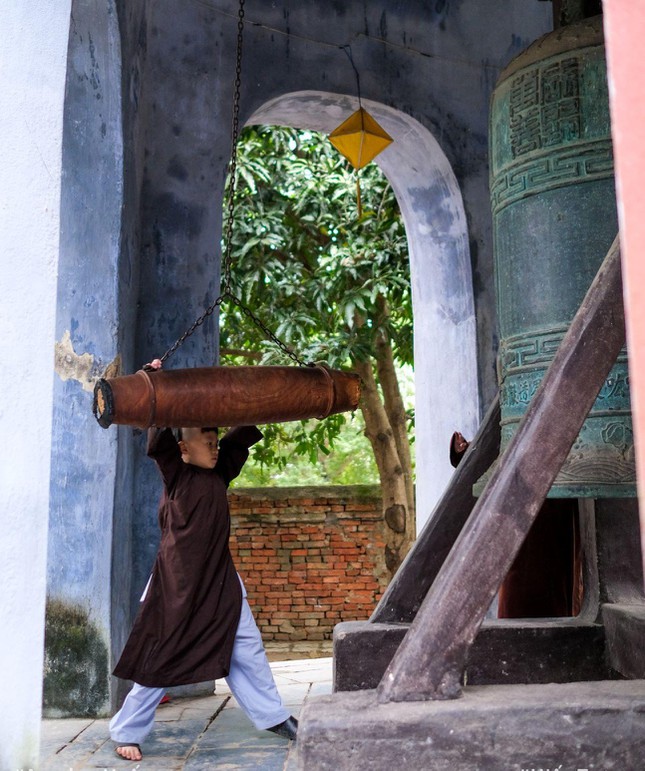
A small monk at Dieu De Pagoda is “trying” to ring the bell of peace on the first day of the Lunar New Year. Photo: Hieu Truong
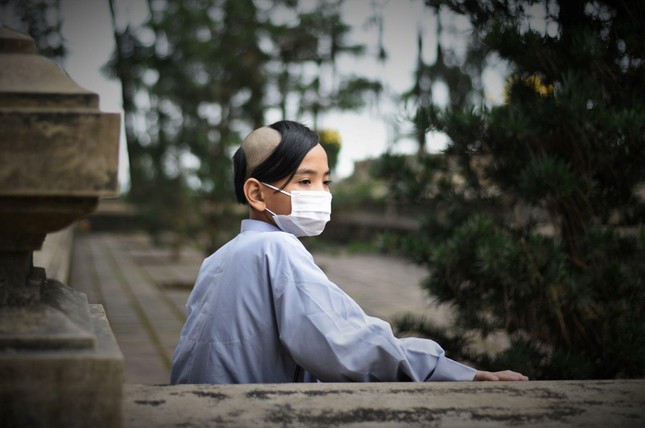
The contemplation of another monk at Thien Mu Pagoda. Maybe it was the moment when he was homesick, missing his parents when Tet came.
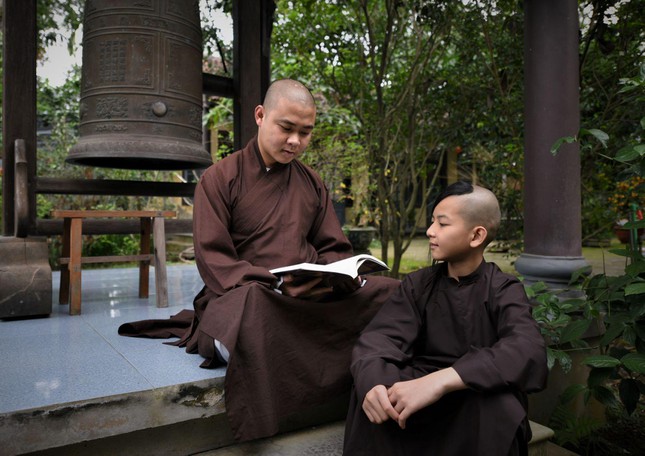
Contrary to the bustle outside, the daily life in pagodas has not changed much.
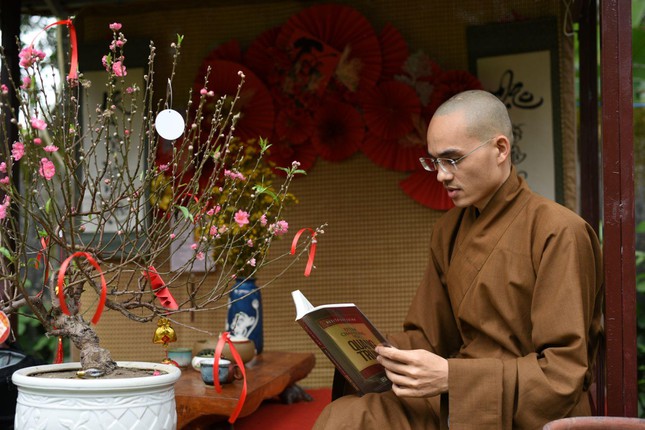
Buddhist scriptures still have to be read and recited.
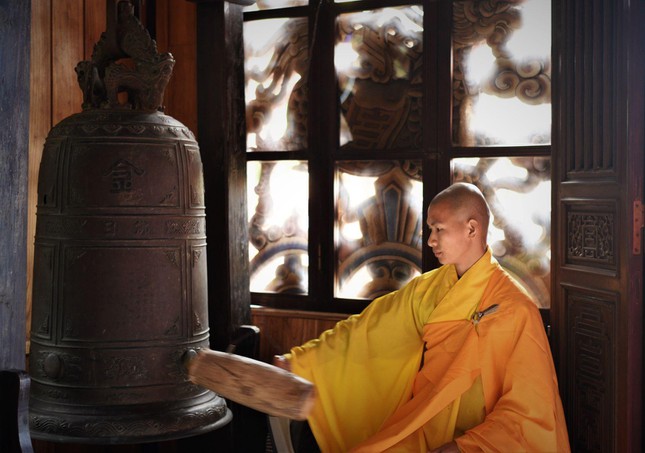
A Buddhist reciting time is conducted twice every day.
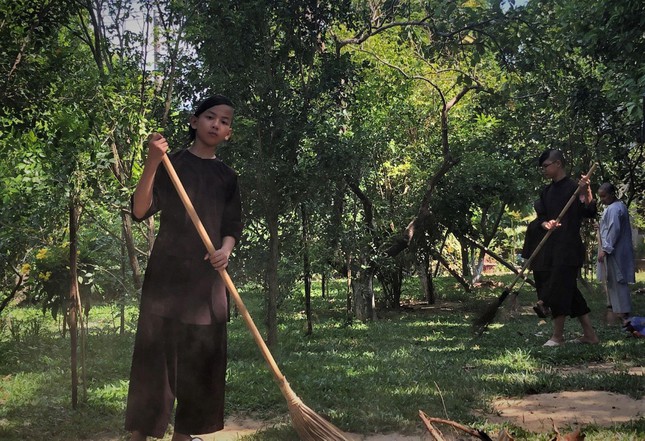
Work regularly in the morning
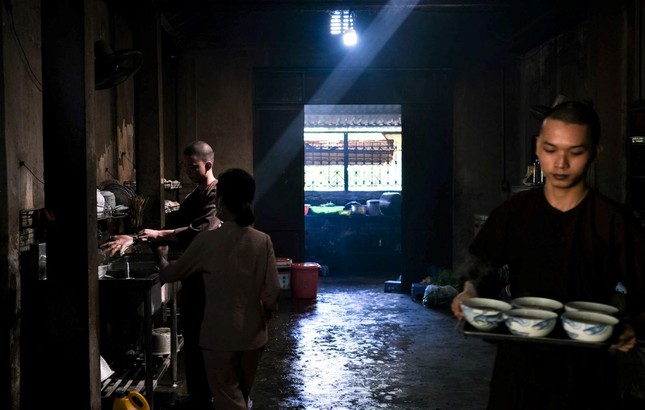
… the meal is still as meager as every day. Photo: Hieu Truong
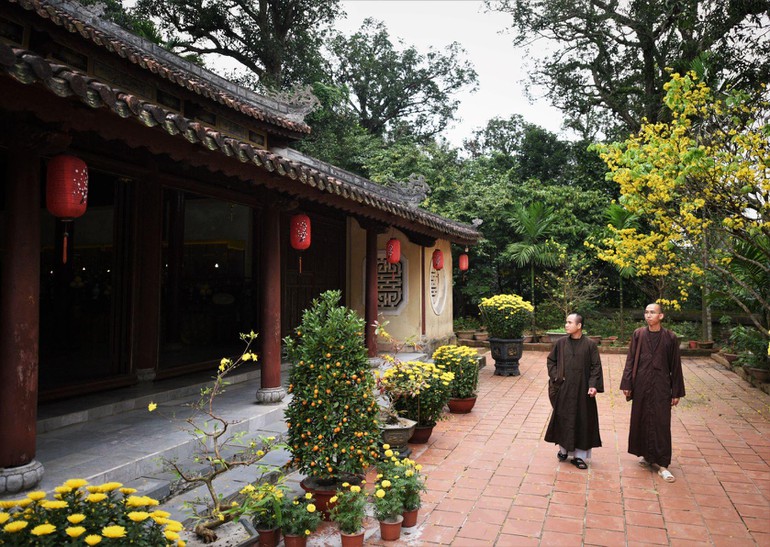
Tet is also an opportunity to visit pagodas and visit brothers after a year of separation.
Quang Dao
